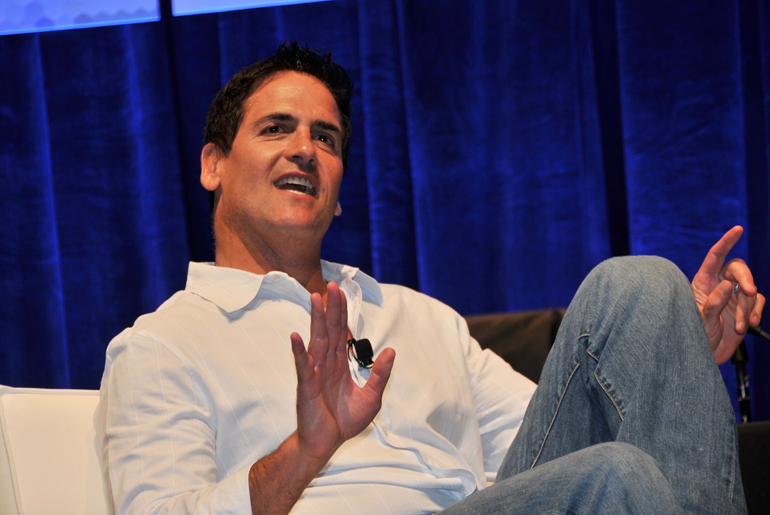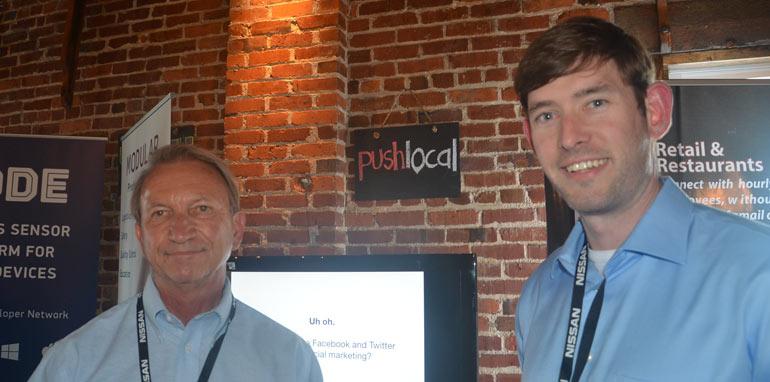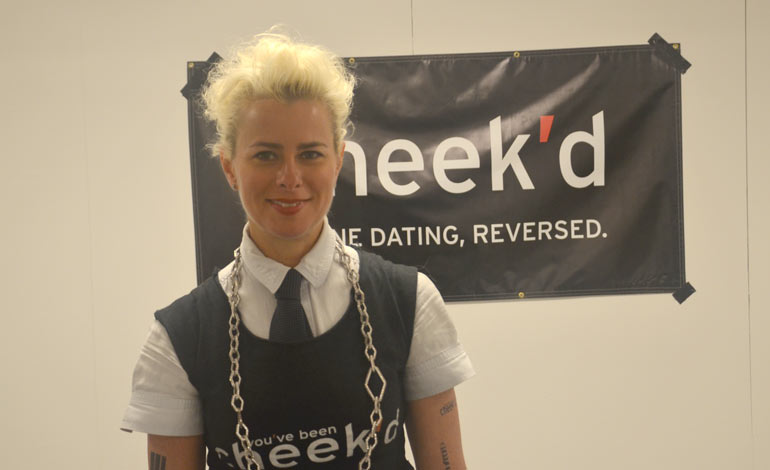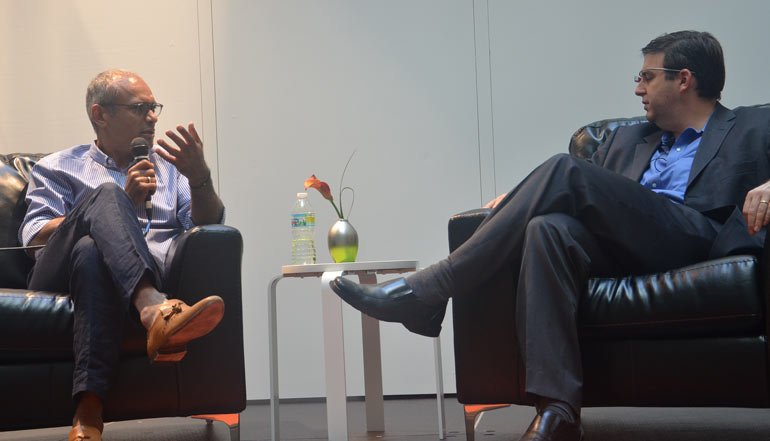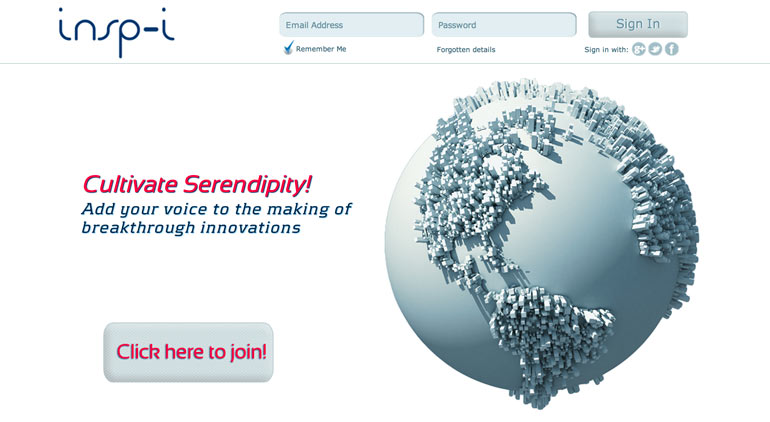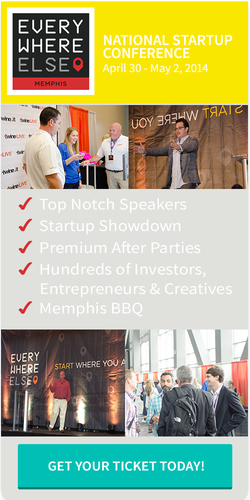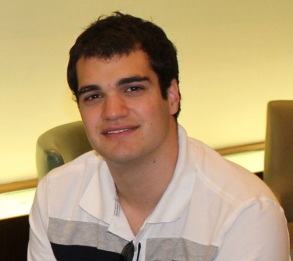 Online education is broken. Or so says Jacob Ruytenbeek, CEO and co-founder of DC startup yourClass.
Online education is broken. Or so says Jacob Ruytenbeek, CEO and co-founder of DC startup yourClass.
Online education has plenty of faults. For starters, although technology is vital to education, in most cases education is the last segment to benefit from changes in technology. Consider this: while there are a lot of startups tackling online education and online learning, most of them are doing it with video courses which are “so 2000s,” Ruytenbeek told us in an interview.
yourClass is connecting real teachers with real learners in a virtual classroom setting. This isn’t new, but what sets them apart is the fact that it’s free for the first 50 live students. The classes are given live and then archived for those that can’t participate during the live date. Students can purchase the archived classes, which is where the revenue comes into play.
The other thing that sets yourClass apart from similar startups is the social component. Student profiles highlight the students social networks where students can get to know each other and collaborate well beyond the live class.
Check out our discussion with Ruytenbeek below.
What does your company do?
We are a marketplace for live online classes.
Who are the founders, and what are their backgrounds
Paul Flynn (Chief Technology Officer) brings his knowledge as an eBay engineer with experience in U/I and marketplace design.
Matt Stock (Chief Learning Officer) is a renowned photographer, educator, and TEDx Coconut Grove speaker. He’s a former University of Miami MD student who decided to follow his passion into photography and teaching rather than continuing medical school to become a doctor.
Jacob Ruytenbeek (Chief Executive Officer) is an attorney who started two previous micro-startups including PaperChace and YachtBlogs Network. He’s a 2009 graduate of the Pepperdine University’s Graziadio School of Business and Management.
Where are you based?
Reston, Virginia, just outside of Washington, D.C.
What’s the startup scene like where you are based?
The #DCTech scene is incredible and supportive. We’re surrounded by tech like the huge AOL campus which is about 10 minutes away and comScore, which is located about 2 minutes away. At the same time, we have access to the downtown DC tech scene with places like 1776, the DC Economic Partnership, and a host of other accelerators for startups. People are approachable, mellow, and looking to help each other out.
What problem do you solve?
Let’s face it: Education is broken. Institutions capture much of the value that teachers create in the classroom; the cost of education restricts access to those who need it most; present e-learning solutions are mediocre at best; and MOOC’s are just the internet’s version of overcrowded classrooms. On top of it all, the virtual classroom is stale and boring. Everyone hates them.
Why now?
Education is ripe for disruption. The problem is humongous and growing by the day. Competitors like MOOCs are not sustainable since they don’t fix many of the underlying systemic issues with online education like we do. We need to change it and we can’t wait – so the real question is why not now?
How it works (more detail)
We fix education by creating a marketplace for learning where anyone can take or teach a class on almost any topic. We do it by removing the institution and connecting the prime source of value, teachers, directly with students. Our live classes are 100% free, so that anyone, regardless of ability to pay, can learn on our yourClass. Live classes are capped at 50 people per session and are recorded. Students can purchase forever-access for a fee set by, and shared with, the teacher.
Our virtual classrooms also help form relationships between students with deep social media integration embedded right into the classroom. Learning from fellow students and developing lasting relationships with them has always been a critical element to a successful classroom and we make that possible. Seriously, the yourClass virtual classroom is as good, if not better than the traditional classroom.
Teachers earn at least a majority of the revenue from class sales and are therefore incentivized to develop high quality classes and they’re share depends on the rating of the class (teachers receive a higher percentage share of revenue for five-star rated classes than they do three-star rated classes) .
Features
At it’s core, yourClass is a virtual classroom that offers synchronous one-to-many and many-to-many live video. It has the standard virtual whiteboard, screensharing, notes, and raise-your-hand features that you’d expect to find in a virtual classroom, but it goes further. For instance, to help students build relationships with their classmates, student profiles incorporate information from social media profiles. When you click on a student’s profile, you’ll see information about who they are and how you know them, who your shared connections are, and what your shared interests are. It’s a wonderful way to create relationships in a virtual classroom.
What are some of the milestones your startup has already reached?
1. Passed first successful internal technology test (translation: our software works)
2. Announced our upcoming beta on 7/10/2013
3. Landed our first big partner (can’t say who yet)
4. Reached our first 100 signups within 24 hours of announcing the beta.
What are your next milestones?
1. 1,000 signups before beta opens.
2. 100 live classes at launch
3. Deliver 10,000 hours of live online learning
Where can people find out more? Any social media links you want to share?
Come by yourclass.net and add your name to our beta invite list. Users can also follow us on Twitter and Facebook (links below) to get free swag like t-shirts, stickers, sneak-peeks, and early access invites.
Twitter: @yourclassedu




